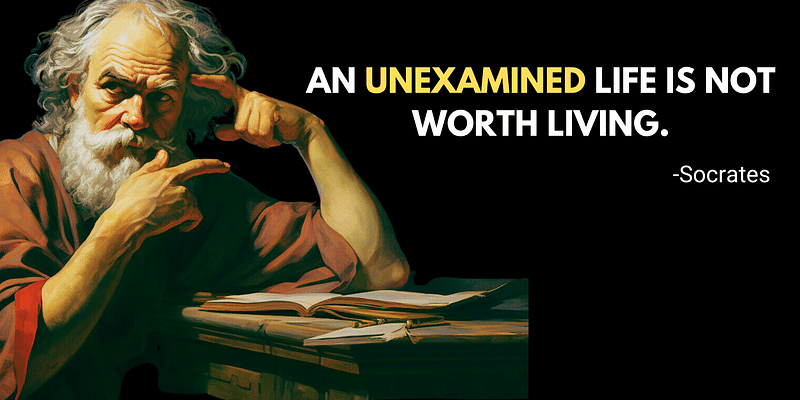
The ancient philosopher Socrates, a towering figure in the history of Western thought, famously declared, “An unexamined life is not worth living.” This profound statement, simple yet intricate, continues to resonate through the ages, challenging us to delve into the depths of self-awareness and philosophical inquiry.
At its core, Socrates’ assertion emphasises the importance of self-examination and critical thinking. It suggests that a life lived without questioning and reflecting upon one’s values, beliefs, and purposes is essentially a life unfulfilled. Socrates, through his method of dialogues and questioning, demonstrated that true knowledge and wisdom come from constantly examining and evaluating our thoughts and actions.
This principle is not merely an intellectual exercise; it’s a call to personal growth and moral responsibility. By examining our lives, we confront our own ignorance and broaden our understanding of the world. This process of self-reflection enables us to make more informed decisions, understand our place in the world, and connect more deeply with others.
Socrates’ philosophy also implies that an unexamined life lacks authenticity. Without introspection, we risk living according to societal norms and expectations rather than our own convictions. The pursuit of self-knowledge leads to authenticity, where our actions align with our true selves.
Moreover, in an age dominated by technology and constant stimulation, Socrates’ words are more relevant than ever. The unexamined life today might be one where we are disconnected from our inner selves, caught up in the superficiality and distractions of social media, and the relentless pace of modern life. Socrates challenges us to break free from these distractions and engage in meaningful self-reflection.
It’s crucial to note, however, that the journey of self-examination is not an easy one. It requires courage to question deeply held beliefs and confront uncomfortable truths about ourselves and the world. But it is through this process that growth and enlightenment are possible.
Socrates’ idea also has significant implications for education and society. It suggests that education should not just be about imparting knowledge but should also encourage critical thinking and self-reflection. Societies that value and promote these practices are likely to be more enlightened and humane.
Socrates’ declaration, “An unexamined life is not worth living,” remains a powerful and enduring call to action. It invites us to embark on a lifelong journey of self-discovery, intellectual rigor, and moral introspection. By embracing the challenge of examining our lives, we open ourselves to the possibility of a more meaningful, authentic, and enlightened existence.










